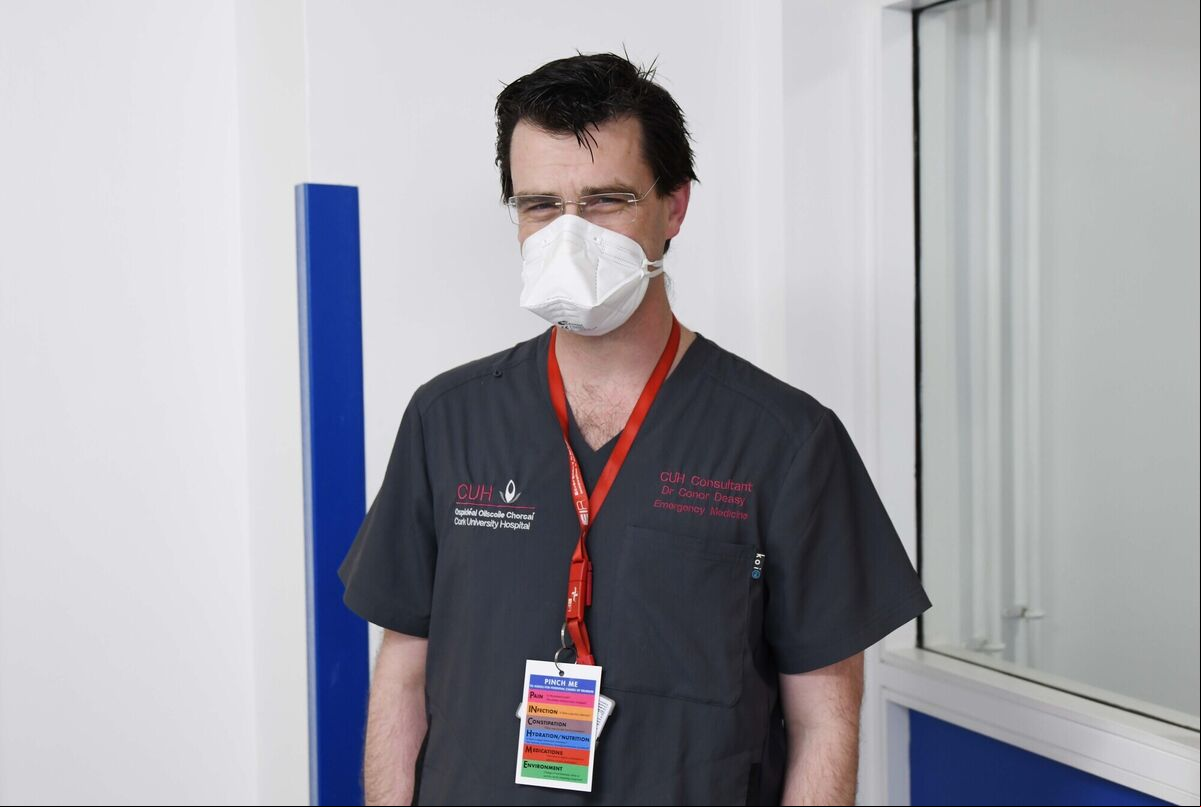Call for public to use CUH ED for emergencies only amid significant delays caused by cyberattack

Professor Conor Deasy said that staff are doing their best to treat those who have a time-critical emergency.
Numbers attending Cork University Hospital’s (CUH) Emergency Department remain “very high” despite the call for only those with a need for emergency treatment to attend.
It comes following the recent ransomware attack on the HSE’s IT systems which has affected EDs across the country, including CUH.
Speaking to The Echo, Clinical Lead, Major Trauma Audit and Consultant in Emergency Medicine, Professor Conor Deasy said that staff are doing their best to treat those who have a time-critical emergency.
“Because we are using paper-based registration, ordering and reporting systems, everything takes significantly longer and is extremely labour intensive,” he said.
Prof Deasy said that the numbers attending the ED “are very high” despite the call from the Irish Association for Emergency Medicine (IAEM) for only those with a need for emergency treatment to attend.
We still saw in excess of 200 patients yesterday, many of whom could have had their care needs met elsewhere.
“Staff are working extremely hard to try and provide safe care. Inevitably there are very significant delays.
“We would ask the public to only use the emergency department for emergencies and to, where possible and appropriate, use GPs and private facilities which are less affected by this ransomware attack,” he said.

In a statement, the IAEM said that while the country’s 28 EDs and 11 Injury Units remain open, that all have been “very seriously impacted by the ransomware cyberattack on the HSE and the consequent need to shut down the multitude of ICT systems used in the public hospital system”.
The IAEM said that while ED medical and nursing staff will do their best to attend to those presenting, care will be provided first to those with the greatest need for care and “there will inevitably be delays in patient throughput”.
Patients attending an ED are asked to bring with them any information of use to medical staff in delivering care, such as documentation which includes a Medical Record Number (MRN) or Patient Chart Number (PCN), as patient istration systems are not accessible.

Current medication lists, prescriptions and discharge summaries from previous episodes of care, which patients or carers have access to, are also useful.
Electronic ordering of blood tests, x-rays and scans is not available and has to be requested manually. Many of the automatic processes used in laboratories are also unavailable, requiring tests to be done manually with long delays in normal turn-around times.
Telephone systems in many hospitals are carried on computer networks and have also been affected and people are asked not to phone the ED except in an emergency.

Those who have had their scheduled appointment cancelled as a result of the cyberattack, are asked not to present to the ED seeking the care, test, or intervention that has been deferred.
The IAEM also highlighted that Covid-19 “is still a real threat to patients and staff alike” and that the precautions taken by EDs to reduce the risk of Covid transmission have to remain in force.
It is important that of the public understand how difficult the provision of care is in the current unprecedented situation and that this situation is likely to continue for some considerable time.
“We ask for your forbearance as we try to help you as best we can. Please help us to help you by following the above advice.
“We are also acutely aware that HSE ICT personnel and many others are working day and night to restore these vital services as soon as possible and although we are currently struggling to provide our normal level of care, all of us at the frontline greatly appreciate their efforts at this difficult time,” the statement read.







 App?
App?


